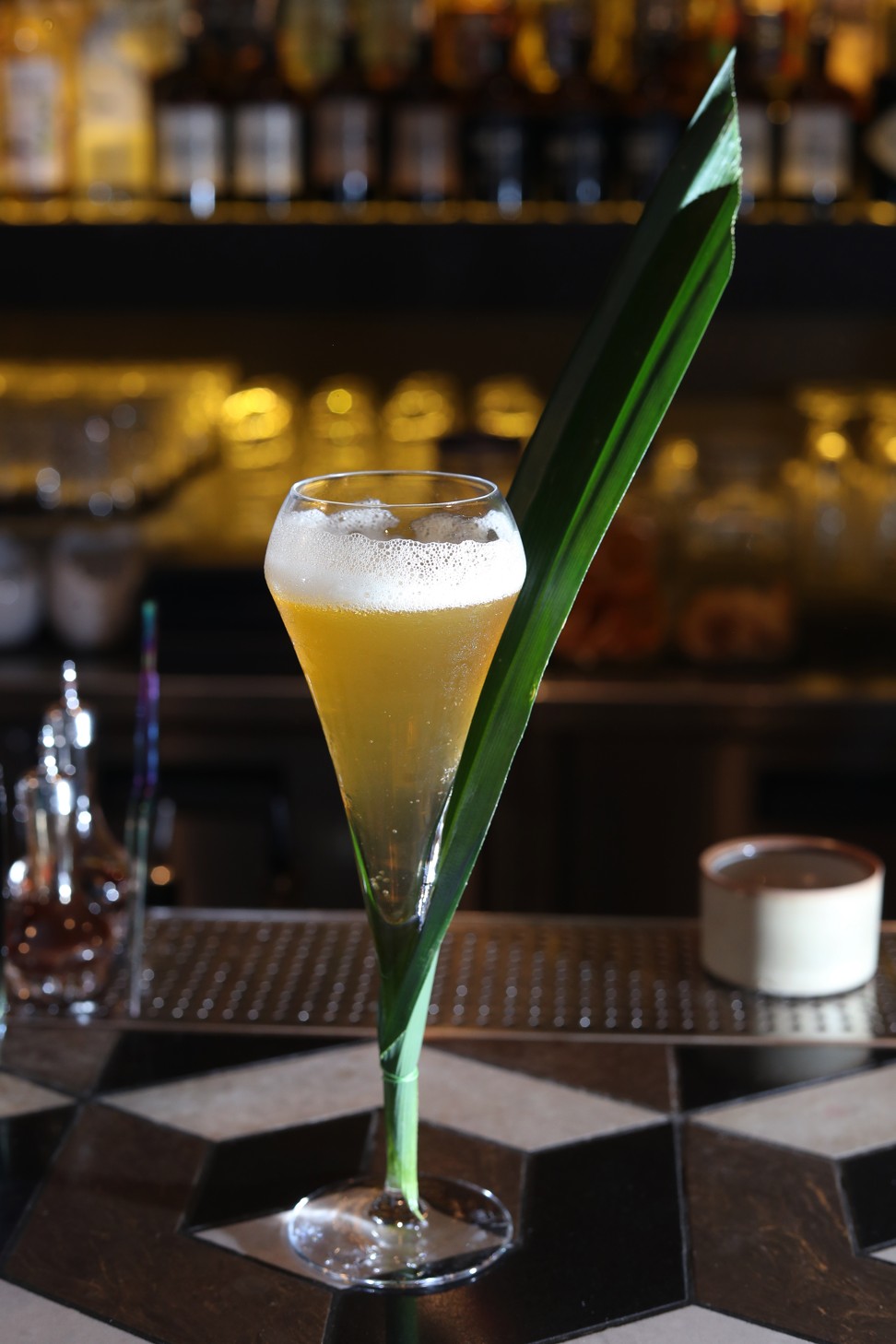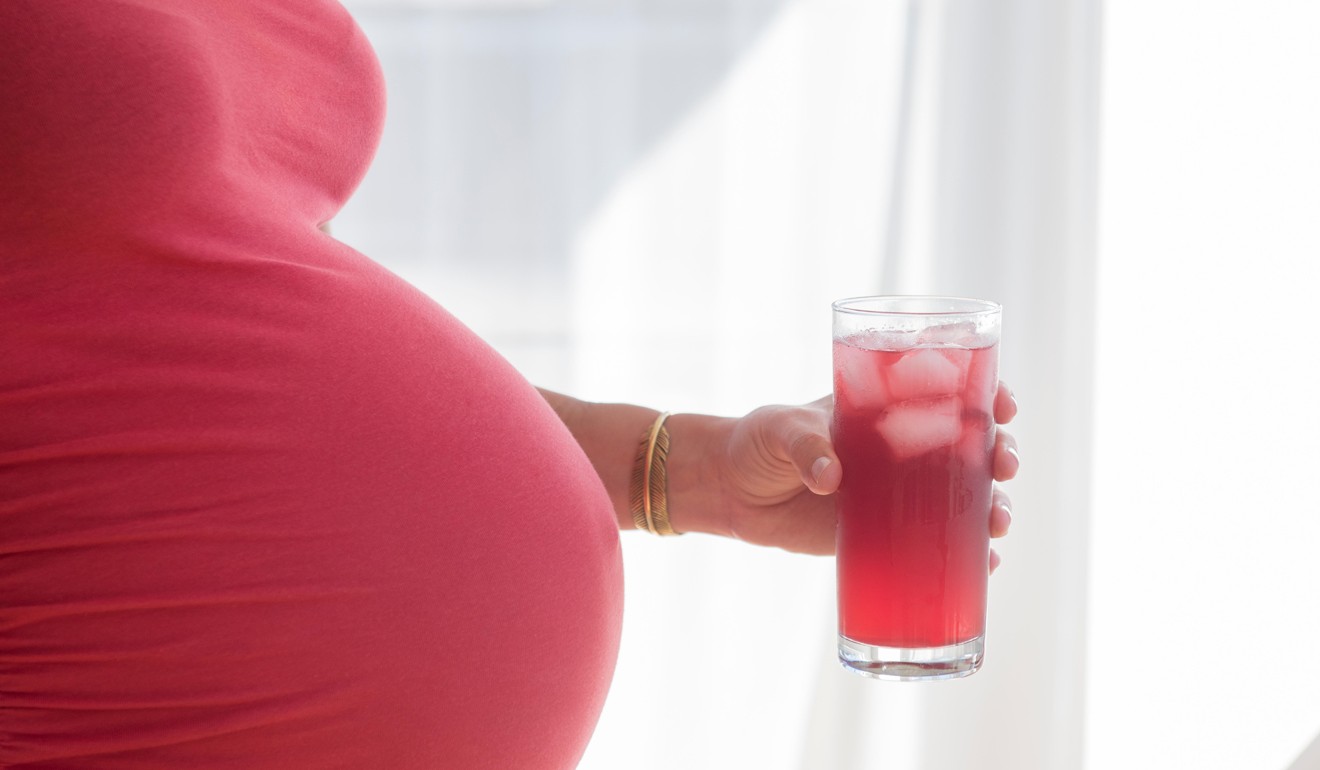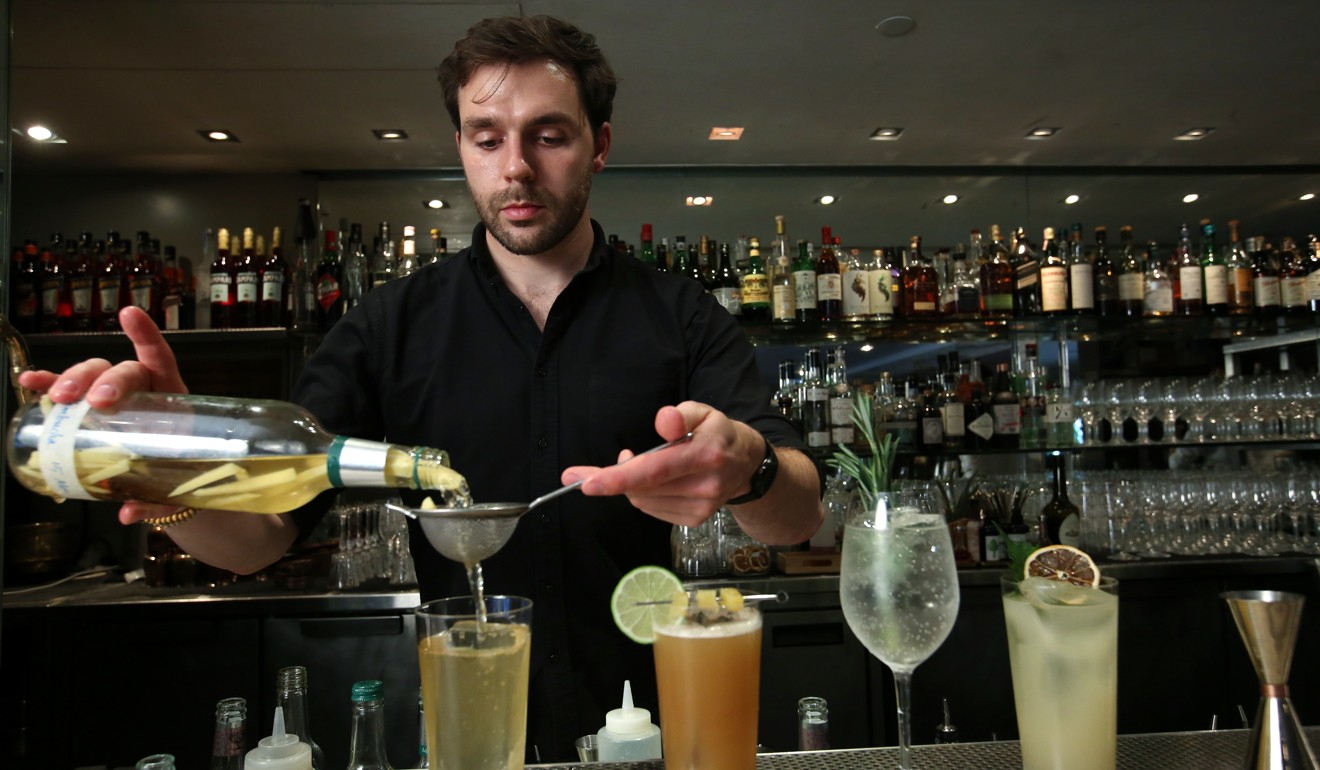
Goodbye mocktails: Hong Kong’s teetotallers embrace alcohol-free spirits and soft cocktails
As teetotallers grow in number, bars are serving alcohol-free cocktails that cost the same and take as much care to make as their boozy versions. We talk to some Hong Kong bartenders and the maker of high-end alcohol-free spirits
At The Envoy, Lai shows off the “spirit-free” menu featuring five drinks that look the same as their alcoholic counterparts but have different names and slightly different presentations so that bartenders and servers know the difference.

He says alcohol-free cocktails are good for those with low alcohol tolerance, women who are pregnant, those taking medication, or who had a boozy night the night before but still want to hang out with friends.
Five reasons why hangovers get worse as you get older – and what you can do to reduce the suffering
“Making a spirit-free cocktail can be similar to making a cocktail – it needs to be balanced and taste good. Alcohol is very good for extracting flavours from ingredients,” he explains.
To make the non-alcoholic version, Lai makes the shiso water by distilling shiso leaves to get as close as possible to the alcoholic version.
“It takes more leaves and time to make it because of the distillation,” he says. “We have to distil at a lower temperature, otherwise the flavour will disappear.”

When Quinary opened, 3 to 4 per cent of customers were asking for spirit-free drinks. Five years on the number has increased to 6 per cent. When Lai talks to guests, they are keen on having non-alcoholic drinks, though initially some balk at the price, as they are only HK$10 to HK$20 cheaper than the version with alcohol.
“But when I explain to them how the drink is made, they understand the pricing,” he says, presenting Morning Dew (HK$108), a green tea drink mixed with pandan syrup that is then carbonated.
What’s the best cure for a hangover? Water, not pills, Hong Kong pharmacists say
The increased interest in non-alcoholic drinks is perfect timing for Ben Branson, creator of Seedlip, a distilled non-alcoholic spirit that tastes like gin. He was recently in Hong Kong presenting his two flavours, Seedlip Garden 108 that has a herby garden flavour thanks to peas, hay and rosemary, while Seedlip Spice 94 is flavoured with Jamaican allspice, cardamom and oak.

You can have a good time and not have to drink cranberry and orange juice
Each individual ingredient for Seedlip is made this way before blending them, which is why it takes six weeks to make one bottle.
“I’m seeing people drinking a lower volume of alcohol, but drinking better spirits, better cocktails,” says Branson. “I’m seeing people drinking fewer fizzy sugary drinks and drinking better soft drinks. The younger crowd’s priorities are less about going out and drinking alcohol. One in three millennials in London is a teetotaller.
“How we socialise is different. It’s cooler now to exercise and be healthy, people are happy to boast about how long it’s been since they were drunk. It’s more like, ‘see me with my green juice at the gym’.”
Hongkongers’ growing love of booze could create ‘obesity tsunami’
Seedlip is also sugar-free, has no calories and no allergens, though Branson explains there will be some sugar in the tonic water, which is the simplest way to drink it.
He has experimented with extracting flavours from all kinds of ingredients including pebbles (not much luck) and chillies – “you can get the flavour but not the spiciness”. Branson stresses while Seedlip may taste like gin – particularly Seedlip 94 – none of his concoctions contain juniper, which differentiates it from gin.
Currently Seedlip is available in 15 cities, served in 150 Michelin-starred restaurants, and in 20 of the World’s 50 Best Bars. In Hong Kong, it’s on drinks menus at Aberdeen Street Social, PDT, Employees Only, Potato Head, Buenos Aires Polo Club, Frantzen’s Kitchen, Happy Paradise, and for sale at HK Liquor Store (hkliquorstore.com), at HK$328 a bottle.

I’m seeing people drinking a lower volume of alcohol, but drinking better spirits, better cocktails. I’m seeing people drinking fewer fizzy sugary drinks and drinking better soft drinks.
“Soft cocktails don’t give you a headache, nor do they sacrifice flavour because they use the same high quality ingredients,” Barker says. After noticing that many people in Asia don’t want to drink alcohol, he wants to offer them more than Coca-Cola or warm water.
He says mixologists spend as much time making soft cocktails as regular cocktails to ensure balance in sweetness, acidity and length of flavour.
At Duddell’s, the bar on the fourth floor has a page for its soft cocktails (HK$115 each) featuring four drinks with the theme of shinrin yoku, or “forest bathing”, hoping that these drinks will “improve one’s mood, reduce stress, and hopefully, contribute to an overall sense of contentment”, according to the menu.
Bar review: Los Sotano in Central – a cool taste of Mexico where you can enjoy a late drink
They certainly are refreshing and different from each other.
An easy drink is yuzu, featuring the flavour of the citrus fruit combined with sparkling mineral water and floral honey. Another soft cocktail, Garden, uses Seedlip 108 mixed with tonic water.
Houji has a spicy taste thanks to the ginger combined with hojicha – a Japanese green tea roasted in a porcelain pot over charcoal, Okinawa sugar, lime juice and soda and garnished with house-made candied ginger.

